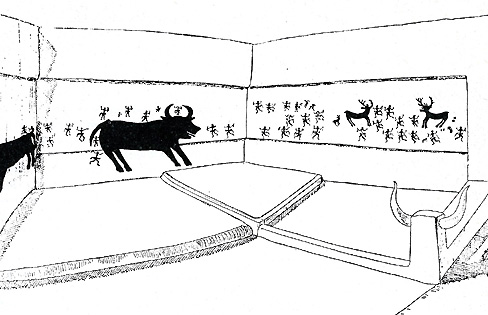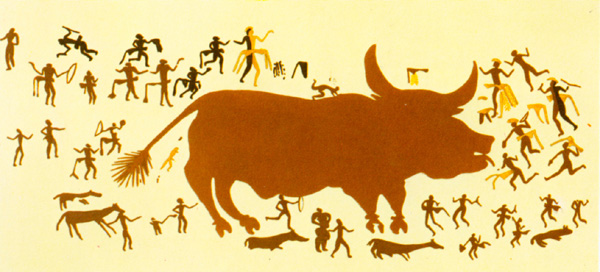
 |
| |
|
|
|
|
Animals |
|
 |
|
 |
|
|
Wall
painting in a sanctuary recovered at Çatalhöyük (Anatolia,
Turkey), one of the main centers of Neolithic civilization dated between
6,300 and 5,400 B.C. In this site, many inhabited levels have been identified,
some of which contained sacred depictions on reliefs and frescos. The
figure reproduces the wall of a possible cultic place, in which a huge
bull does stand out, surrounded by dancing human figures or persons
in ritual attitude. On the right wall two deer can be noticed, which
are also surrounded by human figures. The remarkable dimensions of the
animal, compared with those of the humans surrounding it, could have
been the purpose of representing a ritual scene, performed around an
artificial construction in the shape of a bull, perhaps built with perishable
materials (wood and skins), in some way similar to the large animals
which still today appear during parades in the European carnivals. |
|